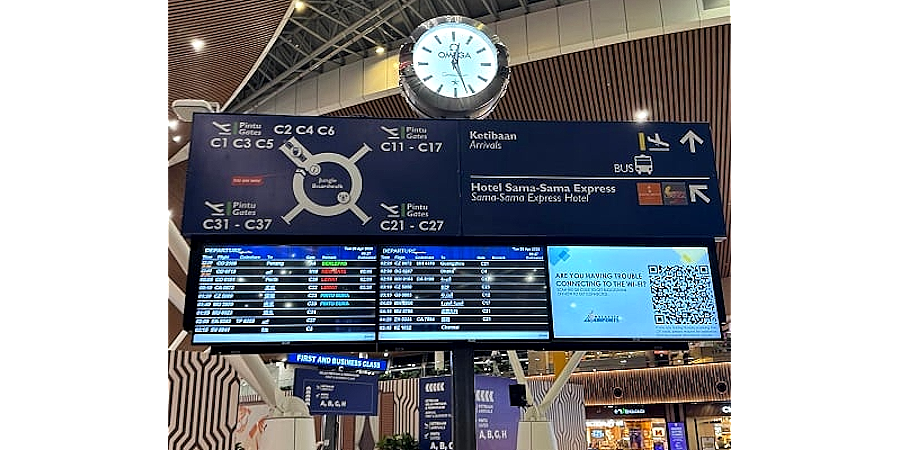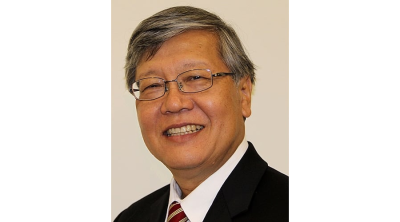
Bernama reported that the agreement recently signed between Malaysia and China stipulates that the visa-free entry practice between the two countries remains the same, namely nationals of both countries can stay up to 30 days for each visit in the other’s country, and no more than 90 days within any 180-day period, according to the Chinese Embassy in Kuala Lumpur on May 6.
This means that you can only stay in China for not more than 90 days in any 180-day period, and will need to apply for a visa if you intend to stay longer.
In other words, the so-called “new policy” is just a reaffirmation of the old one: Everything remains the same. No new addition nor subtraction. The only change is that the visa-free policy’s validity is now extended for another five years (5 years plus 5 years).
On the surface, the visa-free policy does not look generous enough, but to ordinary tourists and the tourism industry as a whole, it is appropriate and adequate!
30 days should be more than enough for a tourist to experience the diverse natural and cultural landscapes of an entire Chinese province or a good number of Chinese cities—from the imperial legacies of capital Beijing to the rustic charms of Jiangnan watertowns, the endless expanse of grasslands in Hulunbuir, to the colorful rural life of Guizhou’s minority communities.
Lest we forget, China with its vast expanse of land at 9.6 million square kilometers boasts distinct seasonal changes that promise varied experiences warranting repeated visits.
30 days in a single visit is enough to take you from the ancient capital of Xian to Dunhuang and southern Xinjiang, or from Sichuan province to Tibet—traversing the country in high-speed trains or metro trains within cities to enjoy the many varied landscapes of the country while savoring the mouthwatering local cuisines—before flying off to a third country for a short break, or back to Malaysia, before embarking on another trip to the Middle Kingdom.
Such a versatile 30+30+30 combination allows one to enjoy the Chinese “long stay” in a more hassle-free manner in order to experience the country more thoroughly.
Of course, to materialize such a “long stay” venture, first and foremost you will need to have ample time, solid financial backing, and not to be tied down by a nine-to-five job!
To most nine-to-five wage earners, a 30-day trip could be excessively luxurious, but to self-employed individuals, distant workers, pensioners, or even those on immersive travels for creative, photographic or research purposes, the new policy does offer a unique opportunity!
To businesspeople and overseas residents who need to regularly ply between the two countries, the biggest advantage accorded by the visa-free entry facility is not just saving time and money, but also saving the trouble of having to apply for visas, allowing them to more flexibly plan their itineraries and even go on impromptu, last-minute trips.
Many Chinese Malaysians still have their relatives in China, or are participating in cross-border SME collaborations. The visa-free policy does remarkably help make the otherwise complex procedures a whole lot easier.
However, just as the policy makes it very much more convenient for Malaysians to visit China, we must not overlook the flipside of the coin.
While having a reflexology session in a third-tier city in China recently, I was told by the boss that about 30 from his trade in the city were prepared to “seek better prospects” in Kuala Lumpur. He said with much confidence: “If 30 days is not enough, we can always extend for another 30 days. We already have our visa periods planned out!”
It is obvious that many over there are planning to “play the edge ball” without violating the law. Although these people might come in as tourists, they are actually looking for job opportunities here!
Anyway, once illegal employment is involved, the risks entailed could far outpace the bonus!
30 days is more than enough for anyone to comprehensively explore the wonders of a country. You can always legally apply for visa extension if longer stay is desired.
While we welcome bona fide tourists, we don’t want illegal migrant workers! A tourist visa should be used just as its name implies, not for unlawful employment or business activities. In other words, they should not be allowed to work as tour guides, livestreaming salespersons, street peddlers, or taking part in any profitable activities here, except business meetings.
This is not just about legal demarcations but also out of the consideration for fair competition and the preservation of social order.
The initial objective of the visa exemption policy is straightforward: to promote mutual visits, civilian interactions and cultural exchanges in a bid to improve mutual understanding and respect. It has never been intended for anyone to exploit the loophole to make some quick money, or establish a scamming base here!
As a matter of fact, the 30-day visa exemption policy between Malaysia and China has already been in place since more than a year ago. The most direct impact felt by travel operators is the rapid and continuous surge in flight frequencies and the number of inbound tourists.
According to weekly statistics from April 7 to 13 this year, there were a record-breaking 472 flights between the two countries offering more than 94,000 passenger seats—a big boost to aviation companies, travel agencies, hotel operators, tour guides and people involved in peripheral services.
More importantly, with the 30-day period set, they can draw up controllable and friendly itineraries that will meet the demands of travelers looking for more immersive travel experiences, while averting the risks of policy abuse.
Imagine if the visa exemption facility can be infinitely extended, will it provide a gray area for visitors to engage in illegal employment activities in the name of tourism?
The reality is: while the 30-day visa exemption policy has been well-intentioned, it could be widely abused by some people. More people may engage in short-term employment, scamming and black-market activities during the 30-day visa-free period. This could adversely affect the country’s international image and stability.
Some might argue that allowing visitors to legally extend their stays here might help mitigate the local labor crunch problem, especially in sectors chronically plagued by manpower shortage such as construction, manufacturing, cleaning and other services. The thing is: poor enforcement and monitoring could turn this “facility” into a “loophole” that will jeopardize the country’s security and credibility.
As such, instead of pursuing “greater freedom” in visa-free length, perhaps we should make the best of the “just good” 30 days! This is not meant to be a restriction, but rather a protection, so that visitors can travel around the country freely and with peace of mind, knowing that the facility will not be abused. This is to ensure that the friendly interactions between the people of both countries will not be defeated by inappropriate behaviors of some.
As a matter of fact, 30 days is more than enough for anyone to comprehensively explore the wonders of a country. You can always legally apply for visa extension or other documents if longer stay is desired. The question is not whether I can stay longer but whether I respect the convenience from this facility.
The meaning of traveling lies not with how long I stay in a country, but whether I have made the best of my travel.
The mutual 30-day visa exemption facility is a rather mild, restrained, but still versatile arrangement. Not too much nor too little. Just good!
(Lee San is Founder and Group Executive Chairman of Apple Vacations. He has traveled to 132 countries, six continents, and enjoys sharing his travel stories and insights. He has also authored five books.)
ADVERTISEMENT
ADVERTISEMENT








































